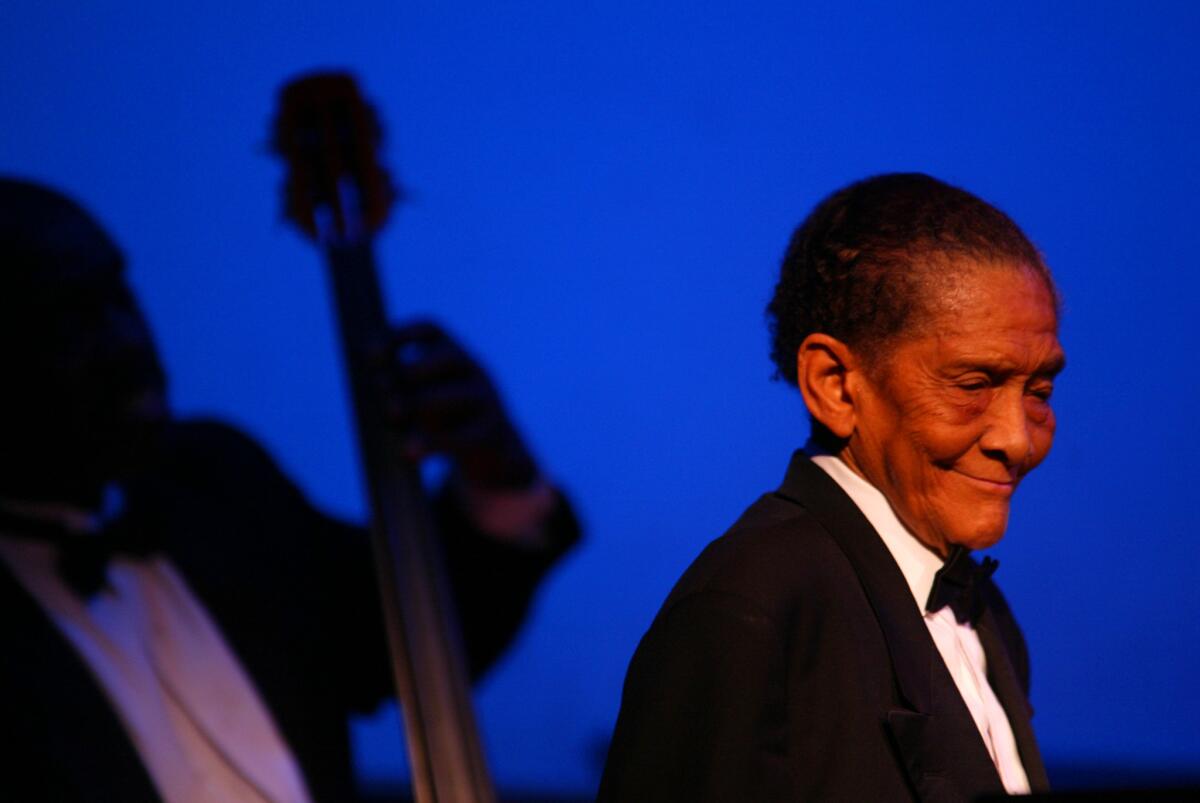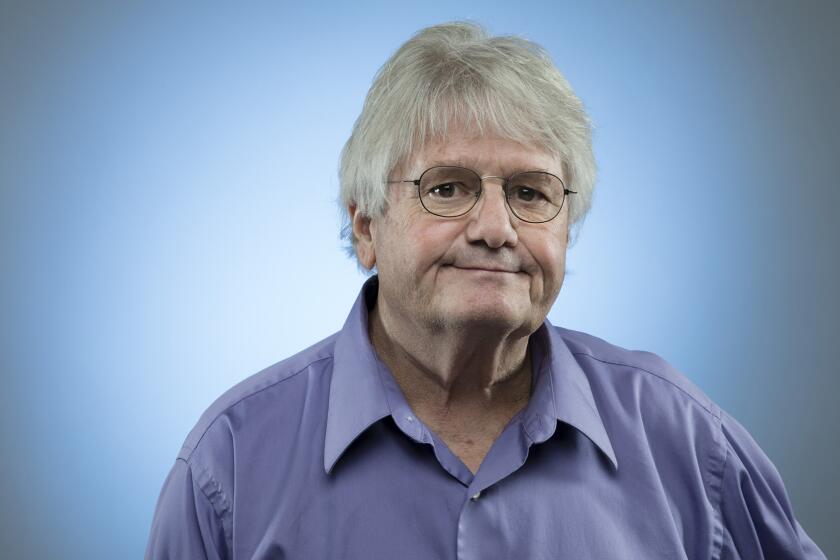Jimmy Scott, jazz vocalist with a distinctive high voice, dies at 88

Vocalist Jimmy Scott, often called “Little Jimmy Scott” for his small stature and memorable, high-pitched voice that was one of the jazz world’s most unique sounds, died Thursday at his Las Vegas home. He was 88.
His wife, Jeanie Scott, reported that Scott died of complications from Kallmann syndrome, a genetic hormone deficiency that affected his entire life.
Scott used his voice, described as “ethereal” on NPR’s A Blog Supreme, as a richly interpretive instrument, earning praise from the likes of Ray Charles, Madonna, Lou Reed, Marvin Gaye, Billie Holiday and Nancy Wilson.
“His interpretations,” The Times reported in a 2001 review, “were compelling, not for their innate musicality but for the high drama of their presentation.”
Although he often sang mid-tempo, rhythmically swinging versions of standards, Scott was best-known for his ballads. Usually delivered at glacial tempos, his renderings of slow tunes were vividly brought to life by what The Times described as his “passionately dramatic phrasing, sung with acute attention to line and detail.”
The Village Voice called Scott “the greatest voice alive.” The New York Times noted that his singing “recalls Edith Piaf,” and the New York Daily News identified him as “a class act.” In 2002, he was identified by the New York Times as “perhaps the most unjustly ignored American singer of the 20th century.”
The combination of his high voice, which was often mistaken for that of a female, combined with his small stature, often led to mistaken identifications of Scott as a woman or a transsexual. His vocal on “Embraceable You” on the album “One Night in Birdland” was credited to a female vocalist.
He first gained notice when he worked with Lionel Hampton in the late ‘40s. But here too Scott often failed to receive appropriate credit for his work. Although he sang lead vocals on Hampton’s “Everybody’s Somebody’s Fool,” a Top 10 R&B hit in 1950, Scott’s name did not appear on the record label.
He was born James Victor Scott on July 17, 1925, in Cleveland, the third of 10 children. His mother died in an auto accident when he was 13, and his father left shortly thereafter; Scott and his siblings were raised in foster homes.
Scott was struck by Kallmann syndrome in late childhood. The malady prevented him from passing through puberty, leaving him with a high-pitched voice and limiting his height to 4 feet 11 inches until he was in his 30s. At 37, he grew 8 inches to his mature stature of 5 feet 7.
Nonetheless, despite its numerous ups and downs, Scott’s long career, stretching more than six decades, included a long list of performances with artists in numerous musical genres. He appeared with jazz performers such as Charlie Parker, Lester Young, Quincy Jones and Bud Powell, as well as pop and rock artists David Byrne, Lou Reed, Michael Stipe and Pink Martini.
Scott was a product of the ‘40s and ‘50s, a time when the threads of jazz, swing, rhythm & blues, and the early manifestations of rock ‘n’ roll were becoming woven in and around each other. Although his catalog of recordings reveals some activity in the ‘50s and ‘60s, he spent many years in the ‘70s and beyond working in nonmusic jobs as a shipping clerk, waiter and a ward captain for the Democratic Party.
Over the next few decades, his career intermittently moved from high-visibility successes to virtual obscurity. And not because of any failures on his part.
For example, an album he considered his “masterpiece,” “Falling in Love Is Wonderful,” recorded in 1962, was withheld from release because of legal differences with the record company.
Recalling the situation, Scott identified it as one of the many negative personal encounters he faced as an African American artist.
“Black performers were like pieces of machines in a factory,” he told The Times in 1990. “You only played a part when you could be useful. There was no interest in planning a career. No interest in making things happen over the long run. One week you could be recording with all those wonderful musicians, and the next week you might not know where your next meal was coming from.”
His career was dramatically revived in 1991 when he sang at the funeral of blues singer-songwriter Doc Pomus and was heard by recording executive Seymour Stein. The encounter led to his 1992 Grammy-nominated comeback album, “All the Way.” He continued to record and perform, occasionally in a wheelchair, until he was well into his ‘80s.
In 2007, he received an NEA Jazz Master award and the Kennedy Center’s “Jazz in Our Time” Living Legend award. Last year he was inducted into the R&B Music Hall of Fame in his hometown of Cleveland.
Scott was married five times; survivors include Jeanie Scott, whom he married in 2003.
More to Read
Start your day right
Sign up for Essential California for the L.A. Times biggest news, features and recommendations in your inbox six days a week.
You may occasionally receive promotional content from the Los Angeles Times.






